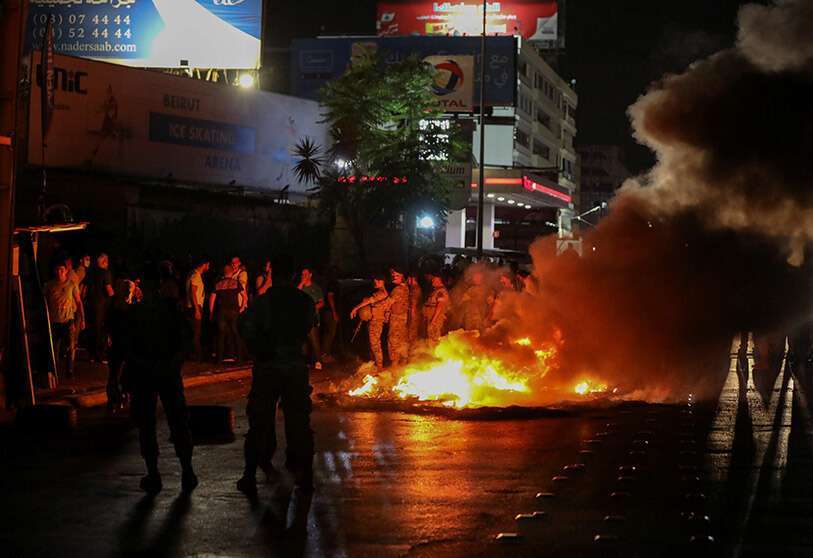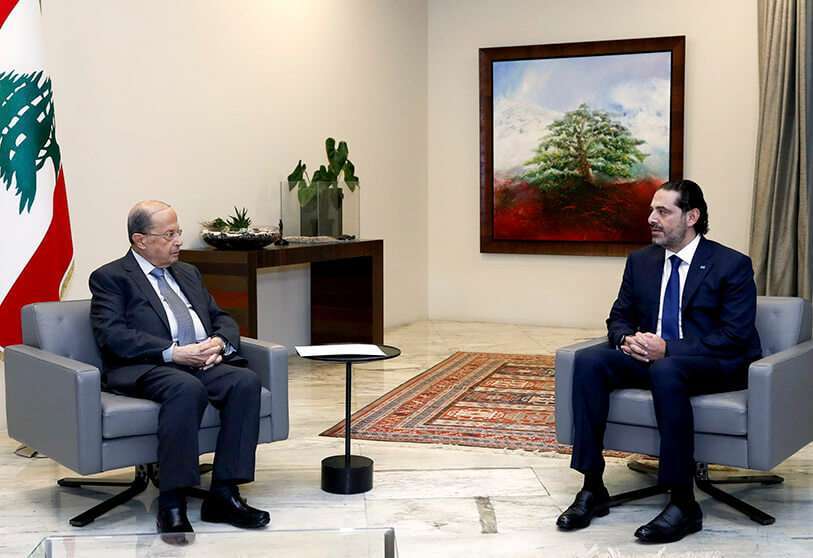Lebanon's economic crisis brings a drowning population onto the streets

In recent weeks, the severe economic crisis has worsened with a new collapse in the value of the local currency, skyrocketing inflation, continuous power cuts and a major shortage of basic goods such as medicines, medical supplies and fuel are plunging Lebanon into an unprecedentedly deep crisis.
Debts are suffocating a country whose citizens are flooding the streets with protests and chaos day in and day out, demanding minimally dignified living conditions. Faced with the inability and immobility of the political class, several Lebanese demonstrators attempted to storm the offices of the Central Bank in the cities of Tripoli and Saida on the night of Saturday 26 June, according to the national news agency ANI. These protest movements are caused by a new all-time low on the black market for the Lebanese pound.

Clashes between protesters and security forces in the northern Mediterranean city of Tripoli injured 18 civilians and military personnel, four of whom had to be taken to hospitals in the area, the official agency reported, citing the Tripoli Emergency Authority Operations Room, which did not specify what incidents caused the casualties or how many of them were military personnel and how many civilians. However, the army confirmed in a statement that nine of its troops were injured after two young men on a motorbike threw stun grenades at them during the protests in Tripoli.
In Tripoli, dozens of protesters marched to denounce the devaluation of the currency and "difficult living conditions", according to ANI. The protesters managed to "tear down the iron gate of a branch of the Bank of Lebanon and enter the outer courtyard", but "the army prevented them" from reaching the building. The protesters also set fire to the gate of the Serail, the headquarters of the northern governorate, according to an AFP correspondent, while other protesters gathered in front of the respective homes of two MPs and tried in vain to break through, despite the presence of guards. "When the demonstrators arrived in front of the house of MP Mohamed Kabbara, gunshots rang out, causing a stampede, while the army intervened to remove the demonstrators".

Since the beginning of the crisis - one of the worst in the world since 1850 according to the World Bank - which began in autumn 2019, the Lebanese pound has plummeted against the dollar. Just ten days ago, it had reached an all-time low, with the black-market exchange rate hovering around £15,500 to the dollar. The official exchange rate, which has been observed for more than two decades, remains fixed at 1,750 pounds to the dollar. This decline represents the country's biggest crisis since the civil war (1975-1990) and represents a loss of 90% of its value in a period of less than a year, placing it, according to Euromoney magazine, at number 16 out of 18 in the MENA area, behind Yemen and Syria.
The crisis is currently accompanied by fuel shortages, causing endless queues at the petrol station. The country is experiencing an explosion of unemployment and inflation, which have rapidly led to large-scale impoverishment, with half of the population now living below the poverty line, according to the UN.

In an attempt to tackle the mile-long fuel queues in the cedar nation, the interim government has given the green light to subsidise fuel at 3,900 pounds to the dollar, instead of the official exchange rate of 1,500 pounds, although on the black market it is close to 17,000 pounds to the greenback. The timing could translate into an increase in the amount of petrol available at service stations, but it is feared that it will also lead to a rise in the price per litre and, therefore, of all the products that need to be transported to the point of sale.
The World Bank (WB) also published a report on the country's economic situation in which it harshly criticised the political elite, describing them as corrupt and blaming the agonising situation in Lebanon for their inability to agree on measures to alleviate the crisis.

"We note the dramatic collapse of the country, the inability of the political classes to revive the country and the tragedy of this country disappearing," said French Foreign Minister Jean Yves Le Drian. He said that both countries would take "strong" initiatives that are "essential to unblock the situation", "out of respect for the Lebanese people". "The United States, France and the international community are ready to help Lebanon, but a Lebanon that is committed to real change. We need to see real leadership from Beirut" for greater transparency and an "end to the endemic corruption that causes so many problems", said his US counterpart, Antony Blinken.
As the country marks the first anniversary of the August 4 Beirut port explosion that killed more than 200 people, Lebanon is sinking into a severe economic and financial crisis. With top leaders arguing over the formation of a cabinet in this country ruled by confessionalism. Street protests are not the only headaches Lebanon faces.
Since the explosion in Lebanon's capital, the repercussions have been felt at every possible level. The first consequences came just a few days later with the resignation of Prime Minister Hassan Diab, which has left a country that is now going through its worst moments. The current impasse in the Lebanese state represents a crossroads of the utmost complexity. The confrontation between the prime minister, Saad Hariri, and the president, Michel Aoun, is keeping a society on tenterhooks as it waits for the formation of a government to be able to access the international aid it so desperately needs.










